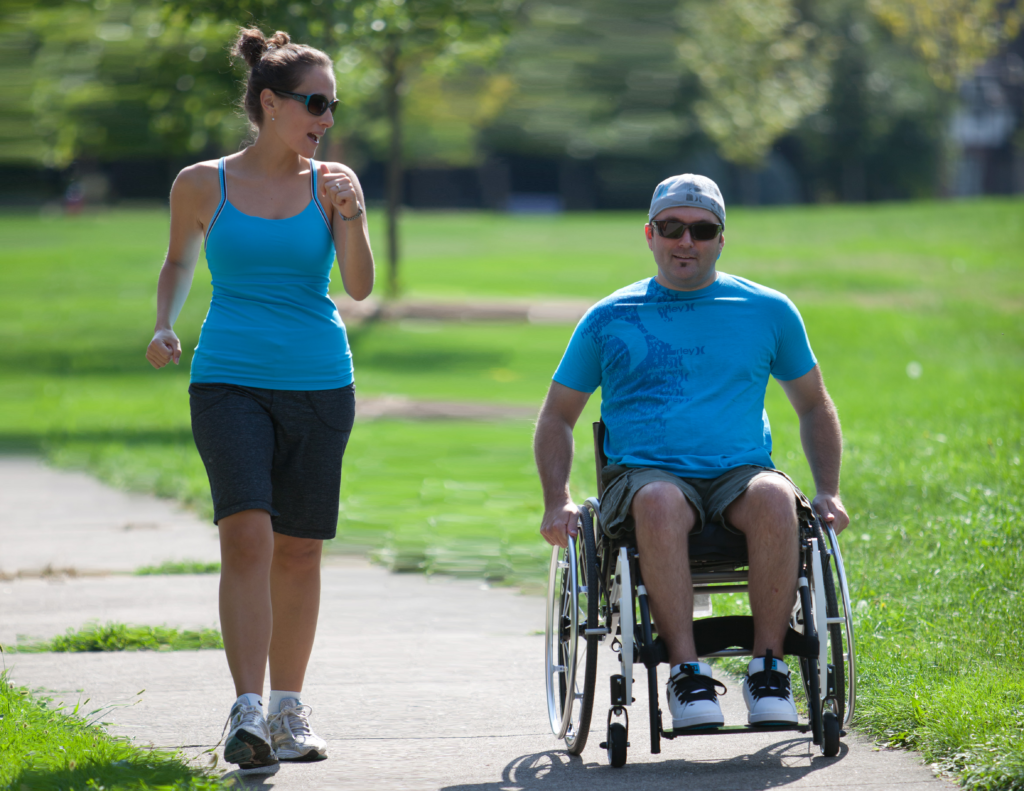
As the Craig H. Neilsen Foundation launches its second decade of Psychosocial Research funding, we are proud to announce that 10 new grants totaling $3.5 million are being funded in 2024. Psychosocial Research (PSR) covers a wide range of issues that affect the mental health of people living with a spinal cord injury (SCI), from moving out of the hospital back into the community, to gaining confidence in coping with challenges of daily life, to developing therapies that promote healthy living. Our grantee partners for this year will focus on ways to encourage physical activity and participation, as well as mental and physical health issues that impact the quality of life for people with SCI.
Some of our PSR grantees are studying mental health risks, such as depression, while others are looking at the experiences of people living with SCI to identify obstacles and motivational barriers to participation in activities of all kinds. Healthy behaviors that range from developing personalized plans to promote physical activity, to strategies for taking control over one’s healthcare needs, to enhancing programs with specific goals, such as quitting smoking, are all areas of interest. Two of our new grantees received Neilsen Foundation support during their postdoctoral training and are now leading their own research programs, an important next step for them as scientists and for the field of psychosocial research.
Regular exercise has a positive impact on overall physical and mental health so examining what motivates people to maintain a healthy and active lifestyle is important. Our grantee partners are studying the personal, environmental, and other barriers to physical activity and testing behavioral therapies that encourage healthy activities that best fit a person’s needs. Another significant health risk is smoking, which is more common among people with SCI than the general population. One researcher is asking what are the motivators as well as the barriers for people with SCI to giving up smoking, and what can healthcare providers do to help them quit?
Physical barriers are important obstacles to maintaining health after SCI. Some of the new grants being made will focus on access to clinics and examination rooms, ground and air transportation, and how to deal with complications related to SCI as they emerge. These studies are designed to explore the issues and develop new informational content created specifically for people with SCI. The research involves interviewing individuals with SCI to create a better understanding of what factors promote or hinder their ability to access care, transportation, etc., and tailor the informational sources to the needs of the end-users.
A practical example is one study that is looking in-depth at wheelchair breakdowns in diverse populations, recognizing that minority groups and people living in economically challenged areas have less access to affordable repair solutions. Without a functioning wheelchair, many people with SCI lose their independence and face being isolated in their homes. This study will document wheelchair breakdown and repair experiences and create an “action plan” to help individuals with SCI find resources. Other transportation studies focus on air travel and community transit options for people living with SCI. Their results will be used to develop new training for airline personnel and shared with local transit authorities to try to improve transportation standards within communities.
Psychosocial research is less familiar to most people than laboratory work to develop new drugs or surgical approaches aimed at repairing the spinal cord, but it gets directly to the needs of people living with SCI. It is work that requires close communication between researchers and people with lived experience, and a joint approach to developing new solutions. Neilsen Foundation grants are selected to give these projects support to define barriers that impact daily life and develop new approaches to overcoming them.